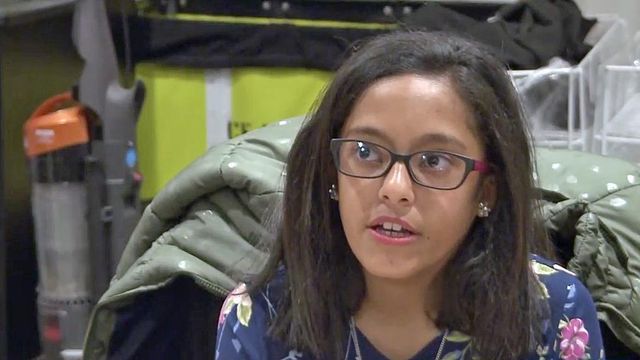Duke doctor pioneers rare disease experimental therapy
One out of every 20 people will live with a rare disease at some point in their lifetime. Many go undiagnosed, and for most, there is not a cure.
Posted — UpdatedSydney Casanova, 12, doesn't remember much about when she was a baby living in Miami, but she does remember one thing.
"When I was little, I was sick all day," she said.
Melyza Casanova, Sydney's mother, said she was essentially born without an immune system.
Doctors were prepared to fix a hole in her heart soon after she was born, but after experiencing seizures, tests showed she had a rare disease called "DiGeorge anomaly." She was born without a thymus gland.
"They usually don't survive past their second birthday," said Melyza Casanova.
Feb. 28 marks Rare Disease Day, and on Wednesday, Duke University pediatrician Dr. Louise Markert described a new hope for curing the syndrome.
Markert pioneered an investigational "thymic tissue-based" regenerative therapy in partnership with Ensyvant Biopharmaceuticals.
At 7 months old, Sydney became one of several children to receive a thymus tissue implant from an infant donor.
"The thymus tissue is taken from another child that's having open heart surgery. It's programmed, reprogrammed, that's how they explained it to me," Casanova said.
The tissue is implanted in the child's thigh muscle. So far, the results show that 60 out of 84 infant patients survived, which is a 71 percent survival rate for those who received the tissue implant.
One year later, 97 percent of surviving infants developed their own T-Cells, including Sydney.
"Her thymus transplant was a success. Now, she's pretty much like your average teenager," Casanova said.
Sydney is a symbol of hope for all children born with different rare diseases that, for now, have no cure.
There are more than 7,000 rare diseases, and less than 5 percent have treatments approved by the U.S. Food and Drug Administration.
The Enzyvant company partnering with Duke plans to file an application for FDA approval of their "thymic-tissue based regenerative therapy" later this year.
Related Topics
• Credits
Copyright 2024 by Capitol Broadcasting Company. All rights reserved. This material may not be published, broadcast, rewritten or redistributed.





